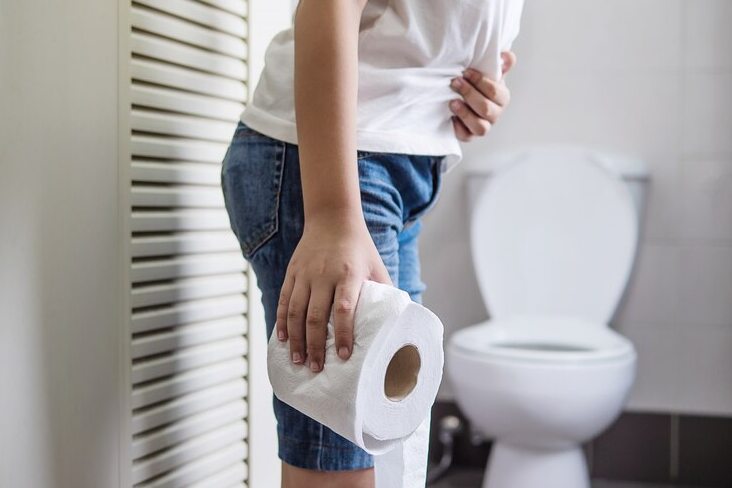When it comes to bowel movements, what’s “normal” can vary significantly from person to person. Some people may go once a day, while others experience multiple bowel movements daily. If you find yourself pooping three times a day, you might wonder whether it’s a sign of good digestion or a potential health concern.
In most cases, frequent defecation is completely normal and influenced by factors like diet, hydration, exercise, and gut health. A high-fiber diet, an active lifestyle, and a well-balanced gut microbiome can all contribute to more frequent bowel movements. However, sudden changes in frequency, consistency, or discomfort may signal an underlying issue that needs attention.
This article will explore what’s considered a normal bowel movement frequency, common reasons for pooping multiple times a day, and when frequent pooping might be a cause for concern.
What Is a Normal Bowel Movement Frequency?
Bowel movement frequency varies widely from person to person, but most experts agree that a normal range is anywhere from three times a week to three times a day. This means that pooping two, three, or even four times a day can be completely normal, depending on individual factors like diet, metabolism, and gut health.
So, is it normal to poop 2 times a day? Absolutely! Many people have regular bowel movements twice daily, especially if they eat fiber-rich meals. Similarly, pooping 4 or even 5 times a day might not be a problem if stools are well-formed and there are no signs of discomfort or diarrhea. However, if an increase in bowel movements comes with pain, urgency, or changes in stool consistency, it could indicate an underlying digestive issue.
Do Men and Women Poop Differently?
While bowel habits vary more by diet and lifestyle than gender, research suggests that women may experience slower digestion due to hormonal fluctuations. This means they might be more prone to constipation, especially during menstrual cycles. However, there is no strict rule for how many times a woman should poop a day—it’s just as individual as it is for men.
Why Do Some People Poop More Frequently?

Pooping frequency is influenced by several factors, including diet, metabolism, hydration, and physical activity. If you find yourself going to the bathroom multiple times a day, it’s often a sign that your digestive system is functioning efficiently. Here are some common reasons why some people poop more frequently:
1. High-Fiber Diet
A diet rich in fiber—found in fruits, vegetables, whole grains, and legumes—can increase stool bulk and promote regular bowel movements. Fiber helps food move efficiently through the digestive tract, which can lead to more frequent trips to the bathroom.
2. Faster Metabolism
People with a faster metabolism tend to process food more quickly, leading to more frequent bowel movements. This is especially common among younger individuals, athletes, and those who consume a high-calorie diet.
3. Hydration
Water plays a crucial role in digestion. Staying well-hydrated softens stool and helps prevent constipation, which can naturally lead to more frequent and easier bowel movements.
4. Exercise and Physical Activity
Regular movement, such as walking, running, or yoga, stimulates the digestive system and helps food move through the intestines more efficiently. This is why physically active individuals often experience more frequent bowel movements.
Benefits of Pooping Every Day
Having daily bowel movements is often a sign of good digestive health. Regular pooping helps the body eliminate waste, prevent bloating, and maintain gut balance.
Benefits of Pooping Twice a Day
Some people naturally have two healthy bowel movements per day, which can indicate a high-functioning digestive system. If your stool is well-formed and you feel good, there’s no need for concern—your body is simply working efficiently.
Pooping a Lot But Not Diarrhea
If you’re experiencing frequent bowel movements but they are well-formed and not loose, it’s likely not a problem. Some reasons for frequent but normal pooping include:
Diet Changes – A sudden increase in fiber intake or probiotics can cause more frequent bowel movements as your gut adjusts.
Gut Health – A healthy gut microbiome, supported by fermented foods or probiotic supplements, can promote regular digestion.
Body’s Natural Rhythm – Some people naturally have more frequent bowel movements due to genetics or an efficient digestive process.
When Is Frequent Pooping a Concern?
While frequent bowel movements are often a sign of a well-functioning digestive system, there are times when pooping too much may indicate an underlying issue. If you’ve recently noticed an increase in frequency and are wondering, “Why am I pooping so much all of a sudden?”, it’s important to consider potential causes.
Common Causes of Excessive Bowel Movements
Irritable Bowel Syndrome (IBS)
IBS is a common condition that affects the digestive system, leading to symptoms like abdominal pain, bloating, and frequent bowel movements. Some people with IBS experience diarrhea-predominant symptoms (IBS-D), which can cause continuous bowel movements throughout the day.
Infections & Food Poisoning
Bacterial, viral, or parasitic infections can irritate the gut and trigger frequent BMs. If you’ve eaten contaminated food or been exposed to a stomach bug, you might experience an increase in bowel movements along with nausea, cramping, or fever.
Stress and Anxiety
Your gut and brain are closely connected, and high levels of stress or anxiety can lead to frequent pooping. When the body is in fight-or-flight mode, digestion speeds up, leading to more frequent bowel movements.
Inflammatory Bowel Disease (IBD)
Conditions like Crohn’s disease and ulcerative colitis cause chronic inflammation in the digestive tract, leading to urgent and frequent bowel movements, sometimes accompanied by blood in the stool.
Dietary Triggers & Food Sensitivities
Sudden changes in diet—such as consuming more fiber, dairy, or artificial sweeteners—can cause an increase in bowel movements. What causes frequent BMs? Often, it’s as simple as an adjustment in your eating habits.
When to Be Concerned
Not all frequent pooping is problematic, but certain symptoms should raise red flags. You should consult a doctor if you experience:
Persistent diarrhea lasting more than a few days
Severe abdominal pain or cramping
Unexplained weight loss
Blood or mucus in the stool
A sudden, drastic change in bowel habits
If you’re wondering, “Why am I pooping so much all of a sudden, female?”, hormonal changes (such as pregnancy, menstruation, or menopause) can also play a role. However, if symptoms persist or worsen, it’s best to seek medical advice.
When Is Frequent Pooping a Concern?

If you find yourself constantly needing to poop, it can be uncomfortable and disruptive to daily life. Occasional bouts of frequent bowel movements are usually harmless, but if you feel like “I cannot stop pooping” or you’re also experiencing other symptoms, it’s important to address potential causes and solutions.
Lifestyle Changes to Reduce Frequent Pooping
Adjust Your Diet
Limit high-fiber foods: While fiber is essential for digestion, too much—especially insoluble fiber from raw vegetables, whole grains, and legumes—can speed up bowel movements.
Identify food triggers: Common culprits like dairy, spicy foods, caffeine, and artificial sweeteners can irritate the gut.
Stay hydrated, but not excessively: Too much water or certain electrolyte drinks can have a laxative effect.
Manage Stress
High stress and anxiety levels can increase gut motility, leading to more frequent trips to the bathroom. Try meditation, deep breathing exercises, or yoga to help regulate digestion.
Regulate Your Bathroom Schedule
Sometimes, the urge to go frequently is a habit rather than a medical issue. Training your body to have bowel movements at a set time each day can help.
Medicine for Pooping Too Much
If lifestyle changes don’t help, over-the-counter medications may provide relief:
Anti-Diarrheal Medications: Loperamide (Imodium) can slow down digestion and reduce urgency, but it should not be used for extended periods without consulting a doctor.
Probiotics: These can help restore gut balance if frequent pooping is caused by an imbalance in gut bacteria.
Electrolyte Solutions: If you’re pooing and weeing a lot, you may need to replenish lost fluids and electrolytes with drinks like Pedialyte or electrolyte tablets.
Conclusion
Pooping three times a day is generally normal and often a sign of a healthy digestive system. Bowel movement frequency varies from person to person, and factors like diet, hydration, metabolism, and physical activity all play a role. Many people experience multiple bowel movements daily without any issues, especially if their stools are well-formed and easy to pass.
However, if you notice a sudden increase in bowel movements, experience persistent diarrhea, abdominal pain, unexplained weight loss, or other concerning symptoms, it may be time to seek medical advice. Identifying potential triggers—such as dietary changes, stress, or underlying health conditions—can help you manage your bowel habits effectively.
In most cases, frequent pooping is not a cause for concern, but staying in tune with your body’s signals is key to maintaining good gut health. If something feels off, don’t hesitate to consult a healthcare professional.


